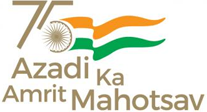Teaching-Learning
Teaching-learning is a two-way process, which benefits both the teacher and the student and its designed to enhance student's effectiveness and create opportunities within the education fields.To improve subject understanding we develop lesson plans which include Individual study, group discussion, topic discussion, and lectures. The department of Sanskrit also gives remedial and extra classes and engage them in project work to prepare students for their career.
Under the learning process, we encourage students for individual performance from which they learn the ability to articulate. We also prepare them for competitive exams by organizing quizzes and recitation competitions. Moreover, we take students' feedback which makes teaching-learning easier and more effective. Students are taught with different ways like research work, group discussion, role play etc.
Capacity Building
Teaching the grammar and literature of one of the most ancient languages is a very challenging task. Our students are adult learners and come from various backgrounds, needs, and interests. Teachers are responsible for keeping them engaged while teaching them the basics of grammar and literature to ensure their skills advances. Various factors are at work in making literature and grammar learning productive, meaningful, and fun.
Since the needs and interests of students vary, the study materials we provide make a significant difference. These materials should be relevant, informative, engaging and enjoyable, and should enable students to understand and talk about personal, social, academic, and public interest issues. The Sanskrit department has always aimed to accomplish these goals and provide students various written and audio-visual texts related to people's daily social lives.
Student Progression
After completing their schooling, the students enter college. In the first semester of their college, the students have little knowledge of Sanskrit texts and language. The students in the initial semester read the introductory Sanskrit texts, which enhance their understanding, reading, and comprehension power of the Sanskrit language.
In the other semester, the advanced Sanskrit grammar and literature increased their fluency in the language. They start asking important questions about the texts. Moreover, In the last semesters, the students became advanced learners and developed personal attributes such as persevering, helping others, leadership in the classroom, etc.
Our students take an active role in discussions and consistently cooperate with the teacher and other students. Students listen generously and share ideas frequently. They engage with project work and work well in groups-planning and carrying out activities. Our students are enthusiastic about learning the Sanskrit language and enjoying it.
In the last year of their college, they consistently make promising career and educational choices. The students show respect for peers and teachers. They participate in classroom activities.
They are enthusiastic about participating in Sanskrit quizzes and recitation competitions. After graduation our students have got admission in PH.D(10%), M.A(60%),B.ED(20%) and other fields like banking etc.
Awards and Recognition
Awards and Recognition
Curriculum Development
We use the methods through which our students learn fast and efficiently, and at the end of the semester, they know the language and its grammar. We include Sanskrit texts from different aspects such as Ayurveda, philosophy, literature, and grammar. Hence, the students have several choices to continue their further study.
The department offers many courses on computer awareness, Ayurveda, Jyotish workshops, and training opportunities to build their capacity.
Add-on course improves their Sanskrit language and enhances their vocabulary.
Faculty Research Projects
Department of Sanskrit is working on a project, "Sanskrit Sahitya main Aanand" For this, we are researching various Sanskrit Shastras.
Student Research Projects
Our department has taken up two Project with I,II&III year students first project topic is on Epigraphy (Bharhmi Lipi) and second student project is related Ram from Ramayana.
Best Practices
We try to engage the student in the classes in many waysand few best practices like sharing reading material and practice concepts in various ways,use same Sanskrit vocabulary in several different sentences to improve language with a friendly environment in the class to enjoy their learning and develop skills simultaneously.
We add visual and auditory means for teaching, and the variety keeps the students on their toes and more interested in what's going on in class.
We, teachers, set a timer at the beginning of the course to have a few minutes to talk to students about their study and the problems regarding the content/course/analysis etc.and give few minutes to discuss with classmates in the beginning of class and It helps students to stay focused once class begins because they have had a moment to socialize.
Moreover, Project-based learning is a method where students learn by examining real-life problems and challenges. Students can present their findings and ideas to the class in ways that appeal to them. They can create a video, do a presentation, or write a report.

